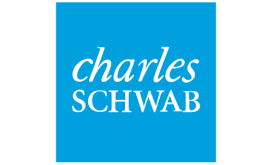Our Criteria
We evaluated Roth individual retirement account (IRA) from brokerage firms available in all 50 states, ultimately only featuring those that fit our strict criteria. For inclusion on this list, providers must have at least the following:
- $1 trillion in assets under management if offering a self-directed account
- $20 billion in assets under management if offering a robo-advisor account
Editor’s Choice: Best Overall IRA Provider of 2025
Fidelity

Our Take
Fidelity retains its top spot in the 2025 edition of Annuity.org Roth IRA provider rankings with an impressive array of features and accolades. The company, which advertises access to more than 10,000 funds, placed No. 1 in the 2025 J.D. Power Self-Directed Investor Satisfaction Study for those seeking guidance.
Pros
- No. 1 in Investor’s Business Daily’s Most Trusted Financial Companies
- No minimums or account-opening fees
- Strong planning tools, calculators and more
Cons
- No futures trading offered
More Insights and Experts’ Takes
Fidelity stands above the rest for those interested in Roth IRAs in part thanks to its strong performance in virtually every category customers consider.
It’s a highly trusted company — placing No. 1 in Investor’s Business Daily’s trust index — and scores highly for customer satisfaction. In an increasingly online world, its accessibility can be appealing.
“They have branches. That’s comforting to people. You can walk into a branch,” Marguerita Cheng, CEO of Blue Ocean Global Wealth, told Annuity.org. “You can always work with somebody if you don’t know how to do something, get someone on the phone.”
There is no account or advisory fee to worry about when you open a Roth IRA with Fidelity. Additionally, the company offers access to a variety of planning tools and calculators that can assist you in mapping out your retirement goals.
Best Robo-Advisor
Wealthfront

Our Take
If you’re interested in the automated management of a robo-advisor but still want control, Wealthfront can split the difference by allowing you to set up a Roth IRA with a scale that lets you easily set a level of risk you are comfortable with.
Pros
- Customizable risk score
- Portfolio choices for socially conscious investors
- Low account minimum
Cons
- 0.25% management fee
- No access to real financial professionals
More Insights and Experts’ Takes
Wealthfront makes it easy to set up an IRA with its user-friendly interface, allowing you to customize a portfolio to suit your preferences. One of its most useful features is the risk score, which lets clients set a level of risk they are comfortable with and automatically adjust their portfolio accordingly.
“There’s people who would much prefer to do everything through an online portal rather than having to talk to an advisor or customer service rep,” Barbara O’Neill, owner and CEO of Money Talk, told Annuity.org.
A downside to be aware of with Wealthfront is that it does charge a 0.25% management fee. This is lower than some traditional management services but obviously a departure from competitors that advertise no fees.
Best for Hands-On Investors
Charles Schwab

Our Take
With an impressive trading platform and a No. 2 place in the 2025 J.D Power Investor Satisfaction Survey for do-it-yourself clients, Charles Schwab is a strong option for hands-on investors looking to be actively involved with their Roth IRA.
Pros
- Well-regarded trading platform
- Strong customer service
- No account minimums or monthly fees on Roth IRAs
Cons
- Higher margin rates
More Insights and Experts’ Takes
Charles Schwab brings a lot to the table for hands-on investors, combining a reputation for high-level customer service, a strong trading platform and low fees.
Schwab does not require account minimums and charges no monthly fees for its Roth IRA clients. It also recently acquired TD Ameritrade, which placed on its own in Annuity.org’s 2023 Roth IRA provider rankings.
In addition to its low fees, Charles Schwab offers $0 online trades. All of Charles Schwab’s market cap mutual funds feature expenses of less than 0.10%.
Best for Hands-Off Investors
Betterment

Our Take
For inexperienced or hands-off investors who don’t want to be involved in the day-to-day of their Roth IRA, Betterment is worthy of consideration. The robo-advisor allows customers to select from pre-built portfolios through a simple, engaging interface.
Pros
- Pre-built portfolios
- Automatic rebalancing and tax-loss harvesting
Cons
- 0.25% management fee
More Insights and Experts’ Takes
Betterment can remove plenty of the stress that comes with managing a Roth IRA by automating the process for you. The company offers you the ability to easily set up your account, select a portfolio that works for you and watch its algorithm get to work on growing your money.
Betterment charges a 0.25% management fee, but its intuitive features can offset the cost. In fact, 78% of customers had their fees fully covered by savings from automatic tax-loss harvesting.
For those seeking automated investing with the option to consult human advisors, Betterment’s premium service provides access to financial professionals.
Our Methodology
Annuity.org uses a strict, fact-based methodology to determine which companies qualify for our rankings. To choose the best Roth IRA providers of 2025, Annuity.org’s independent editorial team carefully evaluated offerings from the top brokerage firms in the country.
To be eligible for consideration, a provider must offer IRAs in all 50 states and have at least $1 trillion in assets under management if offering a self-directed account.
Annuity.org conducted in-depth research on each provider, evaluating areas such as their account minimums, fees, the variety of investment options offered and the tools and resources available to investors.
Additionally, the rankings also took into account how providers placed in the 2024 J.D. Power Self-Directed Investor Satisfaction Study and IBD Trust Index Rating.
Learn more about our broader Editorial Guidelines.
What Is a Roth IRA?
A Roth Individual Retirement Account, or Roth IRA, is a type of account that allows people to invest money during their working years so they can withdraw from it during retirement. Each year, you can contribute up to a certain amount to the Roth IRA and invest your contributions in assets you choose, such as stocks, bonds, mutual funds and index funds.
You can open two types of IRAs: a traditional IRA and a Roth IRA. One major difference between these accounts is the rules for opening them. Anyone can open a traditional IRA, but only those whose annual income does not exceed the limit ($165,000 for single filers and $246,000 for married filing jointly in 2025) can open a Roth IRA.
The other key difference between these two accounts is how they are taxed. You make traditional IRA contributions with pretax money; you can deduct the income you contributed to an IRA from your total taxable income that year. The money in a traditional IRA is taxed when you withdraw money from the account; the distributions count as your taxable income in the year you receive them.
By contrast, you fund Roth IRAs with money that’s already taxed. You can’t deduct Roth IRA contributions from your taxable income, but the distributions don’t count as taxable income in retirement.
Who Should Open a Roth IRA?
Because of the way IRAs and Roth IRAs are taxed, opening a Roth IRA over a traditional one might be a good idea if you believe you will have a higher income at retirement than you do now.
If you have a higher income at retirement, you’ll be taxed in a higher income bracket. This means if you had a traditional IRA, you’d pay more in taxes when you receive the distributions from your account.
By contrast, you pay taxes on the money in a Roth IRA as you make contributions, so you won’t be taxed when you take the money out at retirement. If your income is lower now while you’re making contributions, you’ll be taxed at a lower rate on those contributions.
For this reason, many experts recommend Roth IRAs for young investors. If you’re in your 20s or 30s, your income is likely to grow over your career. By the time you reach retirement age, you’ll likely be making more income and be taxed at a higher marginal tax rate. A Roth IRA can help you take advantage of your financial circumstances to get the most out of your retirement savings.
Editor Norah Layne contributed to this article.
Frequently Asked Questions
Yes, in 2025, the contribution limit for Roth IRAs is $7000, or $8,000 for people aged 50 or older.
You must take withdrawals for Roth IRAs after age 59 1/2 and after a five-year holding period to avoid a 10% penalty. Exceptions can be made for withdrawals related to a first-time home purchase, becoming disabled, education expenses, birth or adoption expenses.
A backdoor Roth IRA is an informal workaround strategy used by people who make too much money to be eligible for a Roth IRA. They can create a backdoor Roth by converting their traditional IRA into a Roth IRA via a rollover or a transfer.






